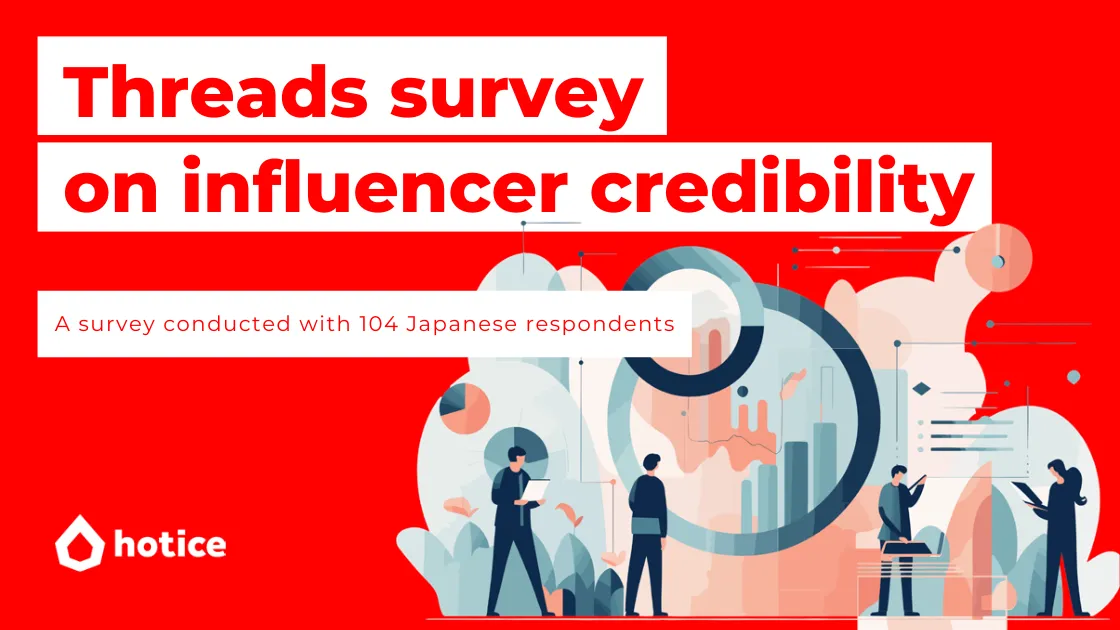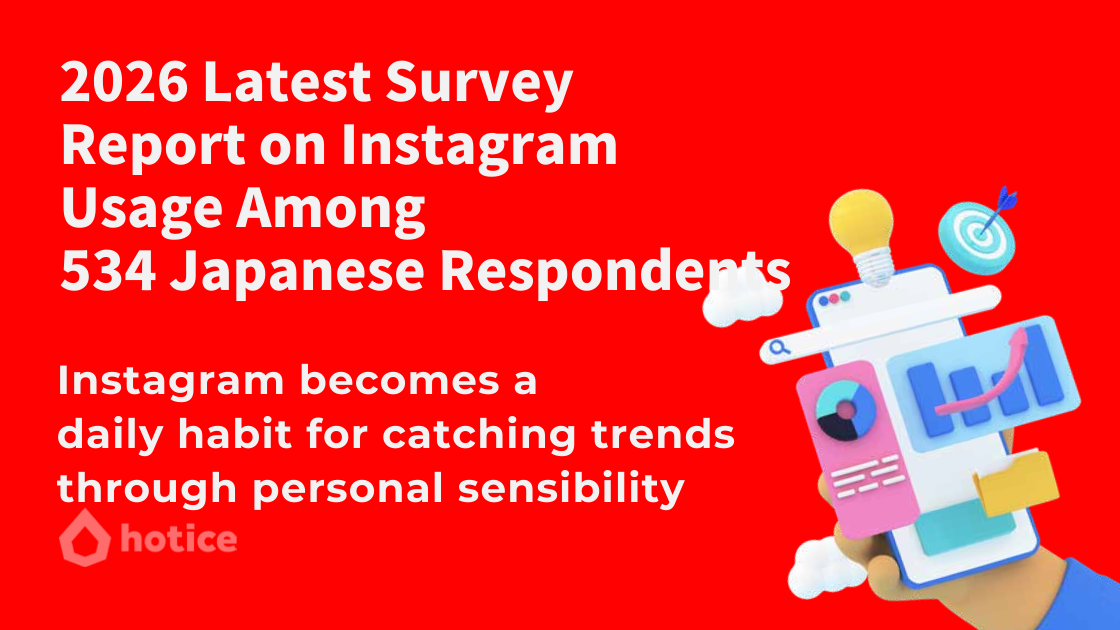Are Influencer Campaigns on Threads Effective? A Study on the Credibility and Empathy of PR Posts

- 1. Threads Users Prioritize Casual Sharing, Empathy, and Openness
- 2. What Builds Trust on Threads? Honesty, Everyday Life, and a Sense of Closeness
- 3. Mixed Reactions to PR Posts—But Around 60% Respond Positively
- 4. What Makes a Post Feel Like an Ad? Overproduction and Frequency Stand Out
- 5. Threads Posts Drive User Actions—From Search to Purchase
- 6. What Users Want: Honest, Clear, and Relatable Communication
- 7. Nearly 70% Believe Threads Is Suitable for Influencer Marketing
- 8. Conclusion
The emerging social media platform Threads offers a unique atmosphere distinct from other networks, where users tend to resonate with posts that leave room for authenticity and personal expression.
In this study, we surveyed 104 active Threads users to explore how influencer posts are perceived and whether these posts foster trust or influence user behavior.
Our findings highlight a strong preference for content that conveys honesty, authenticity, and sincerity, while heavily scripted or overly promotional PR posts often create a sense of discomfort. Conversely, posts that downplay their advertising nature are more likely to be positively received, leading to actions such as searching, saving, or purchasing.
As influencer marketing evolves, crafting clear messaging and maintaining an approachable tone will become increasingly vital. This report sheds light on what it means to be a trusted voice on Threads and offers key insights for future marketing strategies on this new and growing platform.
Threads Users Prioritize Casual Sharing, Empathy, and Openness

The most common reason users engage with Threads is light-hearted: “killing time or entertainment.” Nearly 40% of respondents chose this option, suggesting that the platform is increasingly seen as a casual space for browsing and posting during spare moments.
Following this, many users cited “relatable content” and “an alternative to X (formerly Twitter)” as their motivation. These responses indicate a preference for emotionally resonant interactions over purely informational posts. Instead of hard news or technical content, users favor light, conversational posts that feel accessible and personally meaningful.
A notable portion of respondents also mentioned using Threads for “gathering information” or “checking posts from celebrities,” showing that interest extends beyond personal updates to include valuable content and notable voices. This suggests that Threads supports both a person-centered and content-centered approach to communication.
Overall, the platform appeals to users who value natural, unforced interactions rather than bold opinions or attention-seeking virality. A style of posting that blends seamlessly into everyday life—emphasizing empathy and leaving space for interpretation—appears to define the unique character of Threads.
What Builds Trust on Threads? Honesty, Everyday Life, and a Sense of Closeness

The most commonly cited trait of trustworthy posts on Threads was “sharing everyday experiences.” Forty-six respondents selected this option, highlighting how users tend to connect with stories and moments that feel genuine and relatable.
Other top responses included “feels close to followers” and “speaks honestly,” reinforcing the idea that users prefer content that feels down-to-earth and unpretentious. Instead of trying to appear perfect or overly polished, embracing vulnerability and ambiguity often fosters a stronger sense of familiarity and trust.
Threads, as a platform, also encourages a tone where minor observations or small daily moments are more naturally embraced than overly produced or dramatic content. This environment supports authenticity over performance.
For those seeking to build trust on the platform, it’s more effective to speak candidly from daily life than to craft overly strategic narratives. By maintaining natural interactions—without forcing closeness—creators can gradually earn their followers’ trust and be seen as genuinely credible voices.
Mixed Reactions to PR Posts—But Around 60% Respond Positively

Threads users show a split in their impressions of influencer-sponsored posts. However, a significant 61.5% responded positively, stating they found such posts either “natural and appealing” or “somewhat favorable.”
This suggests that even promotional content can be well-received when it maintains an authentic tone and reflects the influencer’s genuine personality. Posts that blend naturally into the user’s feed—without feeling overly sales-driven—tend to be accepted as just another piece of useful information.
That said, roughly 35% of users felt “somewhat negative” or noted the content “felt too much like advertising.” This points to a noticeable portion of the audience who are sensitive to posts that come off as overly scripted or formulaic.
The key takeaway is clear: retaining one’s voice and authenticity is essential, even in PR content. When influencers speak in their own words and introduce products as part of their everyday lives, promotional posts can still feel relatable and trustworthy to their audience.
What Makes a Post Feel Like an Ad? Overproduction and Frequency Stand Out

On Threads, the most common trigger for users feeling that a post is “too promotional” is excessive production or editing. Overly polished visuals or highly structured formats often come across as inauthentic and scripted.
Users also pointed to “unnatural hashtags” and “robotic or scripted language” as red flags. When a post feels too formulaic or its intent is too obvious, it can create a sense of distance rather than engagement. In other words, the more a post screams “this is an ad,” the less likely users are to connect with it emotionally.
Another frequently mentioned concern was “posting too often,” particularly with back-to-back promotional content. Some users also noted a shift in tone—when a normally friendly influencer suddenly switches to an impersonal, sales-driven voice, the contrast can be jarring.
These insights suggest that reducing discomfort around PR content on Threads requires a natural tone and a balanced posting rhythm. The key to success lies in creating ads that don’t feel like ads—content that blends into the platform’s casual, authentic atmosphere.
Threads Posts Drive User Actions—From Search to Purchase

Viewing posts on Threads often leads users to take concrete actions, as our survey revealed.
Approximately 80% of respondents indicated that after seeing a post, they engaged in follow-up behavior such as researching on other social media platforms, searching for the product, browsing e-commerce sites, saving or taking screenshots, or even making a purchase. These actions suggest that posts on Threads are not just for casual browsing—they often spark genuine interest and consideration.
While around 20% of users reported “taking no action,” the majority clearly transition from passive viewing to active engagement. This shows that Threads is more than just a space for discovery; it’s becoming a key touchpoint in the decision-making journey, helping users move from awareness to exploration, and even to conversion.
What Users Want: Honest, Clear, and Relatable Communication

Posts that resonate most with Threads users tend to share a few key qualities. The most frequently cited was “concise and easy-to-understand information,” mentioned by 48 respondents—a standout figure in the survey.
Other top traits included “honesty and transparency,” “not feeling like an ad,” and “a non-pushy tone.” Together, these responses reveal a clear preference for content that feels approachable and low-pressure, allowing users to engage without emotional fatigue.
What’s particularly noteworthy is that how information is delivered matters more than how detailed or persuasive it is. Content that’s overly complicated or self-promotional can quickly alienate audiences.
On Threads, the tone and humanity behind the message are powerful drivers of trust. Users are drawn more to genuine expression than to polished performance, and they respond more to empathy than to pure logic.
To earn a positive reception, creators should aim for an honest, unexaggerated voice. Instead of delivering one-sided explanations, content that feels conversational and considerate of the reader is more likely to build credibility and influence over time.
Nearly 70% Believe Threads Is Suitable for Influencer Marketing

According to the survey, the majority of users see Threads as a fitting platform for influencer campaigns. A total of 73 respondents—nearly 70%—answered that such initiatives are “already appropriate” or “likely to become appropriate” in the future.
This suggests a growing openness toward the idea of using Threads for brand and corporate marketing. In particular, the platform’s informal tone and emphasis on everyday life make it well-suited for promotional content that feels natural and authentic.
However, around 20% of respondents expressed the opposite view, stating that “Threads is not a good fit for influencer marketing” or that they “prefer brands not to use it.” These concerns likely stem from a fear of the platform becoming overly commercialized or filled with covert advertising.
In short, while influencer marketing on Threads is largely welcomed, there’s a clear expectation that promotional content must remain subtle and aligned with the platform’s relaxed, genuine atmosphere.
This reinforces a broader shift in influencer strategy—where sensitivity in tone and execution is more crucial than ever. Brands and creators must blend in, not stand out, to earn user trust and engagement on Threads.
Conclusion
This survey highlights that influencer content on Threads is most effective when it emphasizes authenticity, honesty, and clarity. In many cases, it’s not just what is said, but how it’s said that shapes how users perceive the message.
Posts that reflect the creator’s unique voice and sincerity tend to be well received—even when they are promotional. In contrast, overly polished visuals, formulaic expressions, or pushy tones often create discomfort and emotional distance, making it harder for users to engage.
Given these insights, the success of influencer marketing on Threads hinges on reducing the “ad-like” feel. It’s not enough to highlight product benefits; the delivery must feel like a natural extension of the influencer’s everyday life.
Rather than aggressively selling, effective communication on Threads involves gently offering value—sharing in a way that feels personal and unforced.
On this platform, subtle yet resonant messaging may prove to be the key to building trust and driving meaningful action.
.png)






